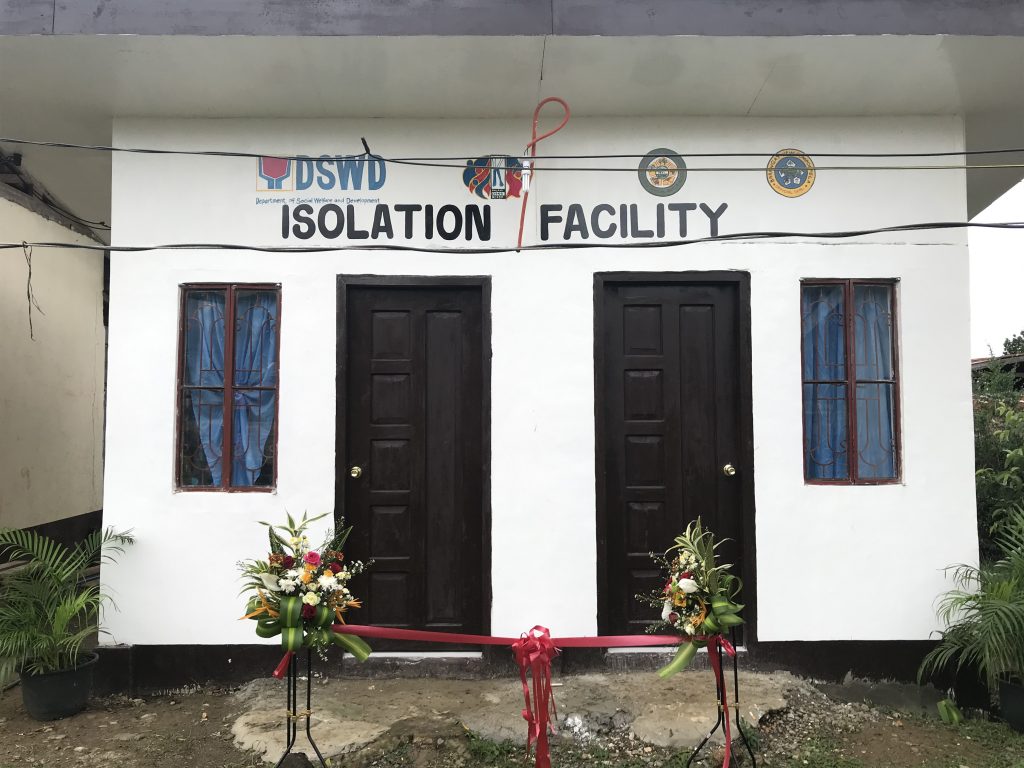The additional three-year implementation of the Kapit-Bisig Laban sa Kahirapan Comprehensive and Integrated Delivery of Social Services-National Community-Driven Development Program (KALAHI-CIDSS NCDDP) is seeking LGU adoption of its processes and strategy alongside the delivery of community-decided sub-projects to strengthen their pandemic response.
KALAHI-CIDSS NCDDP is known for using the Community-Driven Development (CDD) strategy in implementing community projects where people become actively involved in local planning, budgeting, and implementation.
The additional financing will scale up the use of the Disaster Response Operations Modality (DROM) to respond to the impact of the COVID-19 pandemic and other major disasters, and to pursue the institutionalization of CDD in barangay local development planning in partnership with the DILG.
In Region X, 49 municipalities across five provinces will implement NCDDP AF with a target grant of more than PHP600 million for year one. Sub-projects for funding include: capacity building on COVID-19 response and mitigation, establishing or upgrading isolation facilities, water and sanitation facilities, cash-for-work schemes, improvement of rural access roads, procurement of PPEs, and support to community-based livelihood.
A three-year priority list of sub-projects based on the results of the COVID-19 Rapid Damage and Needs Analysis (RDANA) of the barangay will be gradually funded by the municipal LGU as the Program transitions into an LGU-led modality.
The institutionalization of CDD in the local level is being solidified with the integration of CDD elements in the Barangay Development Planning (BDP) Process in partnership with the DILG. By 2023, an enhanced BDP guidelines with harmonized CDD principles and practices will be rolled out to BLGUs.
Over the years, DSWD KALAHI-CIDSS NCDDP has demonstrated success in empowering local communities to tackle inadequacies in basic infrastructure and improving welfare in rural areas.
A CDD Bill is currently filed in the 18th Congress that seeks to institutionalize CDD as a national strategy for poverty alleviation and inclusive growth. More local government units across the country have adopted the CDD strategy in their local planning process, seeing the gains of CDD in improved local governance and lasting benefits of the sub-projects.
With the passage of the CDD Bill, the whole of government—from national line agencies down to local government units will use participatory mechanisms to implement community-based programs, activities, and projects; facilitating a more inclusive and people-centered development.
In Region X 1,944 sub-projects have been delivered since 2014 in identified poor municipalities, creating opportunities for paid labor during the construction of the sub-projects, and sustained economic activity brought about by better facilities and physical assets in the community.
With the current pandemic, Community-Driven Development should all the more be at the forefront as community priorities are also changing in response to COVID-19.
In 2020, the DROM for COVID-19 response delivered 213 sub-projects worth more than PHP130 million into eight municipalities in Region X, benefiting almost 130,000 households across communities and creating temporary employment for people who suffered income losses due to the pandemic. These projects were supported by the local government units’ financial counterparts for the sub-project completion and other logistical support for the Program in their municipality.
The KALAHI-CIDSS NCDDP is one of the social protection programs of the DSWD to be fully devolved to LGUs by 2024 in light of the Mandanas Ruling. With the passage of the CDD Bill, a Knowledge and Research Institute (KRI) will become the spiritual successor of the KALAHI-CIDSS NCDDP which shall endeavor to improve the CDD practice in local government units and continue the gains of Community-driven development.



